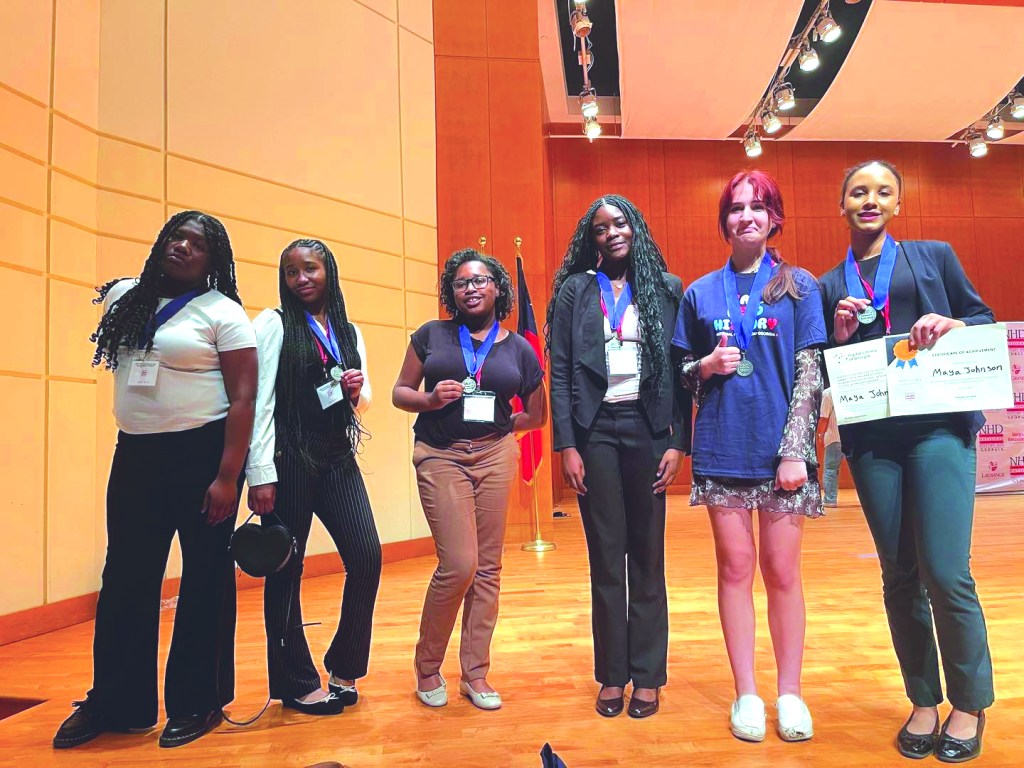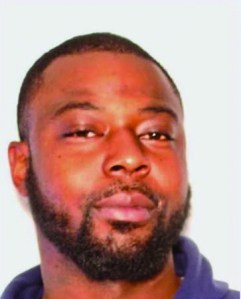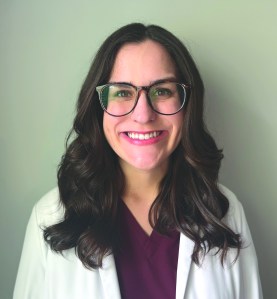GCEC sending six students to National History Day competition
Published 7:05 am Sunday, June 1, 2025

- GCEC students Yasmin Farley, Maya Johnson, Ashley Mullis, Maxime Tchamna, Kenya Dixon, and Skylar Simon, won big at the state National History Day Competition.
It’s always refreshing news to exceed expectations, especially when it comes to the achievements of young students.
Six students from the Georgia College Early College in the Baldwin County School District did just that with the reward being an early summer trip to the Washington, D.C. Beltway to further show off their work at a national level.
The program is the National History Day competition, an academic program that engages students in historical research, analysis and presentation and is a nationwide initiative that encourages students to explore historical topics related to an annual theme. It’s a program Georgia College Early College once participated in — and even hosted at the district level — a decade ago but never had anyone advance very far beyond the state level.
Trending
In the 2024-25 school year, a group of instructors brought it back. Out of 63 students who went to regional and the 37 students who advanced to the state competition on April 26 in LaGrange, six of them in grades 7 through 10 earned the chance to go to the national contest at the University of Maryland June 8-12.
They are Kenya Dixon and Skylar Simon, seventh-graders, for an exhibit on “The Atlanta Race Riot;” Ashley Mullis and Maxime Tchamna, eighth-graders, for an exhibit on “The Refrigerator Ladies;” Maya Johnson, 10th-grade, for a documentary on “The Thalidomide Tragedy: A Violation of Human Rights;” and alternate Yasmin Farley, 10th-grade, for an exhibit on “Facing the Line: Little Rock Nine.”
Projects could also be done as a website, an essay or a dramatic performance. National qualifiers placed in the top two at state, and third place gave alternate status.
“We got a team of teachers who love to collaborate, middle school and high school,” said Runee Sallad, director of Georgia College Early College, giving the administrative side. “Our history teachers from middle school and high school collaborated and decided they were going to re-introduce our participation as a part of our focus on literacy. It requires them to do research, write, understand annotative bibliographies and make connections. We did it last year and expanded it. Grades 6 through 10 participated. Our juniors and seniors are doing college classes.”
Middle Georgia State in Macon hosted the regional competition before state at LaGrange College.
“We thought (state) was it for us,” said Sallad.
Trending
Not quite.
“We asked them, ‘What are we doing right?’” said Sallad. “The projects are beautiful. It was not just based on the beauty of the project. It was about the content. Our students definitely have the content knowledge and they were able to speak well about their understanding of the content and its connection to the topics of the year.
“We decided if that’s the case, we’ll probably end up in nationals every year now that we understand what they’re looking for.”
Two of the GCEC instructors, Dennis Holsey and Yisheika Lawrence, spoke about their students’ projects and preparations.
Holsey explained that there was a national theme students had to follow, “Rights and Responsibilities.”
“Students research their own topics, and when they pick their topic they have to make sure they understand how does it relate to the theme,” he said. “With (The Atlanta Race Riots), they were focusing on how did the media play a role in inciting the Atlanta Race Riots. It also helped them take a different perspective. A lot of times you look at things as black and white, but they wanted to go deeper to see what were the other factors that may have incited that type of violence.
“We also had the women’s suffrage looking at it from the perspective of not just the African-American women but their husbands, trying to see how their husbands feel … being supportive or not.”
“Over the past two years, we wanted to see where we could take our students,” said Lawrence. “We made it a part of the history curriculum that students did this … you had to do the annotative bibliographies and teach them how to do annotative bibliographies and how to do different forms of citations, different research elements, how to form these questions. You have the historical theme there every year, but how can you form a question that is unique and individual in its own right.
“Our students also do these things called passion projects. A lot of my students merge the two. For example, one student worked on Big Foot. That came from the History Channel and watching paranormal things. Then a student who made it to nationals, second place in her documentary category, she loves biomedical history. She focused on the history of formaldehyde and looking at the side effects that caused a generation of children and mothers. They are merging science and national history projects into one.”
How do these students compete at the national level?
Lawrence simply stated, “Step up.”
“The judges did individual meetings with our students and told them how they can improve their projects,” she said. “They just need to enhance their projects and their research.”
“One thing we noticed about our students is they had a lot of primary sources,” said Holsey. “We’re looking more for secondary sources. Just adding more, but not just to add, adding more to understand. A lot of times students just add things, but we made sure we’d be very detailed about each and every one of the secondary sources. They did a good job, didn’t get too many X’s, they got more praise.”
“Our students can compete at the national level,” said Lawrence. “It shows our students are researching in the correct manner. It was a difficult challenge, but they rose to the occasion.”
Sallad added how this and other competitions not only available to but required of GCEC students help improve their students’ Georgia Milestone scores and in other assessments.
And Lawrence said students are already getting National History Day topics for 2025-26 in their summer assignments, and the research is underway.






